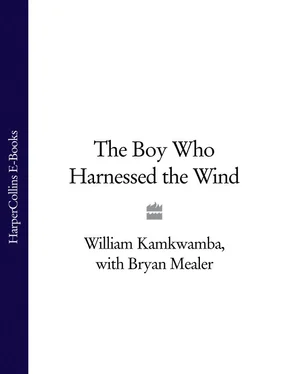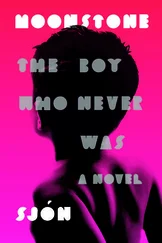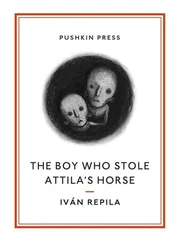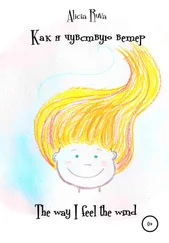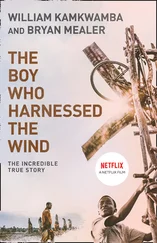The Boy Who Harnessed the Wind
William Kamkwamba and Bryan Mealer
Creating Currents of Electricity and Hope

To my family
Cover Page
Title Page The Boy Who Harnessed the Wind William Kamkwamba and Bryan Mealer Creating Currents of Electricity and Hope
Dedication To my family
Prologue PROLOGUE T HE PREPARATION WAS COMPLETE, so I waited. The muscles in my arms still burned from having worked so hard, but now I was finished. The machinery was bolted and secured. The tower was steady and unmoving under the weight of twisted steel and plastic. Looking at it now, it appeared exactly as it was—something out of a dream. News of the machine had spread to the villages, and people were starting to arrive. The traders spotted it from their stalls and packed up their things. The truckers left their vehicles along the roads. Everyone walked into the valley, and now gathered in its shadow. I recognized these faces. Some of these people had mocked me for months, and still they whispered, even laughed. More of them were coming. It was time. Balancing the small reed and wires in my left hand, I used the other to pull myself onto the tower’s first rung. The soft wood groaned under my weight, and the compound fell silent. I continued to climb, slowly and assuredly, until I was facing the machine’s crude frame. Its plastic arms were burned and blackened, its metal bones bolted and welded into place. I paused and studied the flecks of rust and paint, how they appeared against the fields and mountains beyond. Each piece told its own tale of discovery, of being lost and found in a time of hardship and fear. Finally together now, we were all being reborn. Two wires dangled from the heart of the machine and gently danced in the breeze. I knotted their frayed ends together with the wires that sprouted off the reed, just as I’d always pictured. Down below, the crowd cackled like a gang of birds. “Quiet down,” someone said. “Let’s see how crazy this boy really is.” A sudden gust muffled the voices below, then picked up into a steady wind. It took hold of my T-shirt and whistled through the tower rungs. Reaching over, I removed a bent piece of wire that locked the machine’s spinning wheel in place. Once released, the wheel and arms began to turn. They spun slowly at first, then faster and faster, until the force of their motion rocked the tower. My knees buckled, but I held on. Don’t let me down. I gripped the reed and wires and waited for the miracle. Finally it came, at first a tiny light that flickered from my palm, then a surging magnificent glow. The crowd gasped and shuddered. The children pushed for a better look. “It’s true!” someone said. “Yes,” said another. “The boy has done it.”
Chapter One
Chapter Two
Chapter Three
Chapter Four
Chapter Five
Chapter Six
Chapter Seven
Chapter Eight
Chapter Nine
Chapter Ten
Chapter Eleven
Chapter Twelve
Chapter Thirteen
Chapter Fourteen
Chapter Fifteen
Epilogue
Acknowledgments
Praise
Copyright
About the Publisher
T HE PREPARATION WAS COMPLETE, so I waited. The muscles in my arms still burned from having worked so hard, but now I was finished. The machinery was bolted and secured. The tower was steady and unmoving under the weight of twisted steel and plastic. Looking at it now, it appeared exactly as it was—something out of a dream.
News of the machine had spread to the villages, and people were starting to arrive. The traders spotted it from their stalls and packed up their things. The truckers left their vehicles along the roads. Everyone walked into the valley, and now gathered in its shadow. I recognized these faces. Some of these people had mocked me for months, and still they whispered, even laughed. More of them were coming. It was time.
Balancing the small reed and wires in my left hand, I used the other to pull myself onto the tower’s first rung. The soft wood groaned under my weight, and the compound fell silent. I continued to climb, slowly and assuredly, until I was facing the machine’s crude frame. Its plastic arms were burned and blackened, its metal bones bolted and welded into place. I paused and studied the flecks of rust and paint, how they appeared against the fields and mountains beyond. Each piece told its own tale of discovery, of being lost and found in a time of hardship and fear. Finally together now, we were all being reborn.
Two wires dangled from the heart of the machine and gently danced in the breeze. I knotted their frayed ends together with the wires that sprouted off the reed, just as I’d always pictured. Down below, the crowd cackled like a gang of birds.
“Quiet down,” someone said. “Let’s see how crazy this boy really is.”
A sudden gust muffled the voices below, then picked up into a steady wind. It took hold of my T-shirt and whistled through the tower rungs. Reaching over, I removed a bent piece of wire that locked the machine’s spinning wheel in place. Once released, the wheel and arms began to turn. They spun slowly at first, then faster and faster, until the force of their motion rocked the tower. My knees buckled, but I held on.
Don’t let me down.
I gripped the reed and wires and waited for the miracle. Finally it came, at first a tiny light that flickered from my palm, then a surging magnificent glow. The crowd gasped and shuddered. The children pushed for a better look.
“It’s true!” someone said.
“Yes,” said another. “The boy has done it.”
B EFORE I DISCOVERED THE miracles of science, magic ruled the world.
Magic and its many mysteries were a presence that hovered about constantly, giving me my earliest memory as a boy—the time my father saved me from certain death and became the hero he is today.
I was six years old, playing in the road, when a group of herd boys approached, singing and dancing. This was in Masitala village near the city of Kasungu, where my family lived on a farm. The herd boys worked for a nearby farmer who kept many cows. They explained how they’d been tending their herd that morning and discovered a giant sack in the road. When they opened it up, they found it filled with bubble gum. Can you imagine such a treasure? I can’t tell you how much I loved bubble gum.
“Should we give some to this boy?” one asked.
I didn’t move or breathe. There were dead leaves in my hair.
“ Eh, why not?” said another. “Just look at him.”
One of the boys reached into the bag and pulled out a handful of gumballs, one for every color, and dropped them into my hands. I stuffed them all in my mouth. As the boys left, I felt the sweet juice roll down my chin and soak my shirt.
The following day, I was playing under the mango tree when a trader on a bicycle stopped to chat with my father. He said that while on his way to the market the previous morning, he’d dropped one of his bags. By the time he’d realized what had happened and circled back, someone had taken it. The bag was filled with bubble gum, he said. Some fellow traders had told him about the herd boys passing out gum in the villages, and this made him very angry. For two days he’d been riding his bicycle throughout the district looking for the boys. He then issued a chilling threat.
“I’ve gone to see the sing’anga, and whoever ate that gum will soon be sorry.”
Читать дальше
